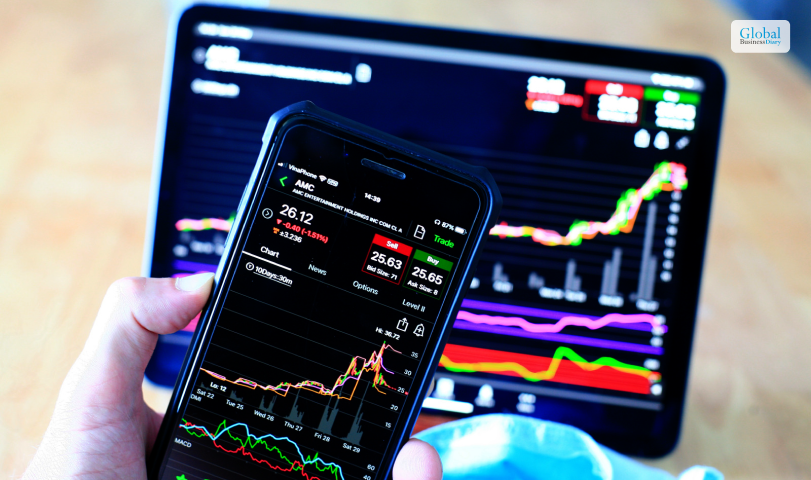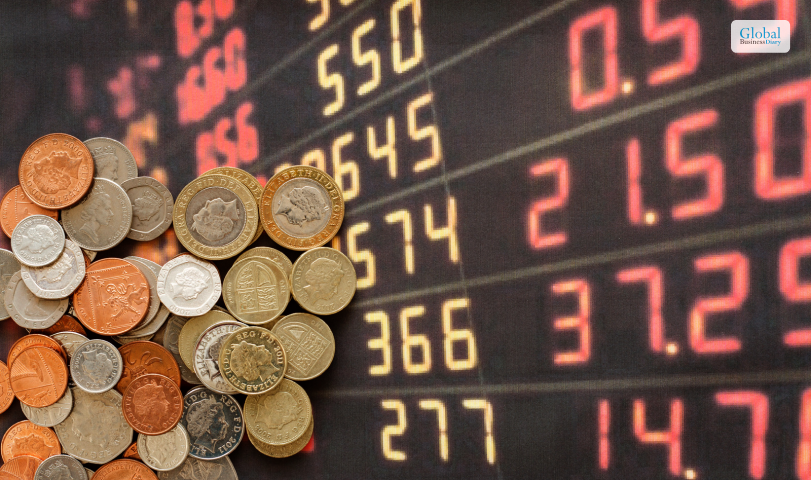The Comparison of Stock Vs. Share: Definition, Significance and Values

Shares are the units used to measure your ownership in a company. Many articles use the terms stocks and shares to mean the same thing. However, there are some fundamental differences between stock vs. share.
When you purchase a stock, it works as a certificate. It shows that you have ownership in a company.
Let me clarify the difference between stock vs. share in simple terms. Take the instance where a company lists its stocks. You buy ten shares of that stock. Each share is equivalent to 1% of your ownership.
But don’t mistake it for 1% ownership in the company.
In easier terms, you don’t buy stock. You purchase shares of that stock.
An understanding of stocks and trading are the basics of investment. First, learn these in detail. Then, start investing. You must understand the difference between the two to make informed decisions while buying and selling shares.
Stocks

Stocks come first. Then shares. You can only buy shares if its stock is listed on the share market.
Definition Of Stocks
In simple terms, investors use the term stocks to denote the companies listed on the stock market. For example, you can refer to energy, large, or mid-cap stocks.
Investopedia defines stocks as:
“a kind of security that suggests the holder has proportionate ownership in the stock issuing corporation and is sold mainly on stock exchanges.”
You can also define a stock as a share percentage to reflect your ownership in the company.
Represent Ownership in a corporation
If you buy a stock, you get part ownership of the issuing company. An individual or entity with the highest shares of a listed company is its primary owner.
To understand stock vs. share, consider yourself a part-owner of a company. In 2023, the NYSE had 2272 listed companies.
You could buy stock from any of these companies.
Claim On Earnings and Assets
Every shareholder has a statutory claim on the company’s assets. If you buy one share of Starbucks for $73.50, that money goes into the company’s total assets. So, when Starbucks profits or gives dividends to its investors, you also get a part of it.
However, your earnings are not in terms of money gained. Starbucks’ share price value will increase if it gives dividends or shares profit. For evidence, you bought one share for $73.50. After that, Starbucks shared its dividend, and the share price became $75.00 (arbitrary).
Payment Of Dividends
Most US companies share dividends every quarter. For evidence, Starbucks shares a $0.57 dividend per share. Here, there is no confusion about stock vs. share.
You gain per share, not per stock. The earnings are shared quarterly. When the dividend is disbursed, it is reflected in your share price value. Make sure to distinguish stock vs. share here.
You will count your earnings on each share.
Example: Owning Stock in Apple
Apple is a stable brand on the NASDAQ. Apple’s current share price is USD 182.74.
Like Starbucks, Apple also gives dividends every quarter. Apple increased its dividend by 4%. In cash, it was $0.25.
The shareholders will get their dividends on 16th May 2024 for the current quarter.
Shares

Now you know about stocks in detail. But what about shares?
Shares are the actual tradable units of stock. Like I said, you can only buy part of the stock. However, you purchase “n” number of shares of a stock. Now, you should not have any ambiguity about stock vs. share.
Definition Of Shares
Shares refer to part ownership in a company. Ay, the company can list a fixed number of shares in the market. Currently, AAPL has 15,509,763,000 outstanding shares in the market.
There are mainly two types of shares. These are:
- Equity shares
- Preference shares
A company gets funds from the market by issuing shares. However, you get an ownership stake in the organization when you buy shares.
Individual Units of Stock
Still need clarification on what shares are? To clarify stock vs. share, I can describe shares as units of equity ownership of a company in the market.
A company will share any surplus profit as dividends to the open market.
Every unit of stock has a fixed value. If the company profits, then you get additional dividends. As a result, you enjoy monetary gain. However, you will incur losses if the company loses the money invested by shareholders.
Convey Information About Investment Size
The number of shares denotes your investment size. If you say you have AAPL stocks, nobody will understand the net worth of your investment in the company.
For instance, you can buy shares in Apple. After that, you and Warren Buffett (who have maximum shares) will be both Apple stockholders and part owners of the tech giant.
But your investment size is different. According to Fool.com, Warren Buffett had 906 million company shares in 2023 (now 790 million). So, he will earn much more than you when Apple gives dividends to their shareholders.
Example: Owning 100 Shares of Apple
Currently, Apple (AAPL on NASDAQ) is trading at USD 182.74. It means that the value of a unit share of Apple’s stock is the same.
If you buy 100 shares, you will pay:
182.74*100= USD 18274.0
The last dividend given by Apple is $0.24 for each share. So, if you bought 100 shares, you gained $0.24*100= $24.00.
Stake

Most people confuse stock with shares. Stake is the term used to define the relationship between shares and stocks. I have shared essential knowledge about stakes here.
Definition Of Stake
A stake is the amount an investor gives in exchange for a company’s stock. If you have shares in a company, you also hold a particular stake in the firm.
Represents Ownership Percentage In A Company
Warren Buffett had around 905 million shares of Apple in 2023. It means that he should have a good stake in the company. If you hold a few shares, then it cannot be calculated in terms of percentage. However, that many shares are equivalent to a 6% stake in Apple.
It is also the ownership percentage of Warren Buffett’s company, Apple. The current valuation of the stake is $174 billion currently.
Not Limited to Stock Ownership
The stake is a broad term. It is not only used to measure the percentage of stocks of a company that you own. You can use the term to denote your percentage of ownership in any asset. For example, you can have a stake in an investment property.
Stockholders, Shareholders, and Stakeholders

Now you know what stock vs share are. You also know the meanings of stocks, shares, and stakes. If you invest in any company, you are its stockholder.
If you have “n” number of shares of any stock, you can call yourself a shareholder.
Again, stakeholders have a certain percentage of the stock issued by a company in the share market. In a common context, these terms can be used interchangeably.
These three can be used to refer to the same person. However, there is a slight difference. Warren Buffett has a 6% stake in Apple. His percentage is significant because he has 790 million shares. So, you can imagine your stake will not be fathomable if you have a handful of shares.
Stakeholders Have a Financial Interest in a Business
When you have invested in so many shares, you will earn a lot if the company profits. Similarly, you will lose big time if the company goes into losses.
John T. Walton Estate Trust, Vanguard Group, and BlackRock hold the highest shares of Walmart. So, it will matter to them if Walmart gains or loses money.
Conclusion
I hope the confusion of stock vs. share will end now. If you own a stock, it means you are the certified owner of “n” number of shares in a company.
You can understand a stock as the instrument used by a company to trade in the market. Again, shares are single units of stock in the market.
You are the sole owner of a company if you are the sole owner. At the same time, the person or entity with the highest stock is also a part owner.
The difference is that he will gain more than you. In simple terms, both of you will gain a certain dividend on each share. The person with higher shares (of the same company) will earn more. You must understand the three terminologies clearly to make a more informed choice in the share market. I hope this article solved your confusion about stock vs. share.
#Disclaimer: The information provided on this blog is for educational and informational purposes only and should not be construed as financial advice. I am not a licensed financial advisor. Any investment decision you make is at your own risk, and you should consult with a qualified financial advisor before making any investment decisions. This site may contain affiliate links, and I may earn a commission at no additional cost to you.
Read More Interesting Business Articles By Clicking Below!!













